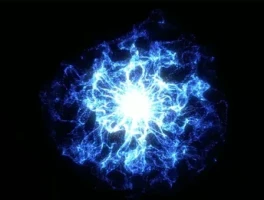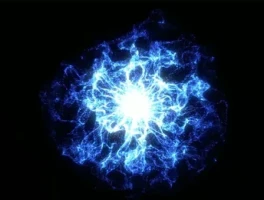So, I typed "plasma" into a search bar this morning. My mistake. I was vaguely curious about the decommissioning of that old JET fusion reactor in the UK. Instead, I was buried under an avalanche of schizophrenic results. On one screen, I had a crypto bro hyping a new blockchain, a scientist talking about containing a star in a metal donut, and an ad asking me if I wanted to sell my blood for pocket money.
This is fine. Everything is fine.
This isn't just a quirk of a search algorithm. It's a symptom of a deeper sickness. We've let SEO gurus and marketing departments hijack the English language. A word like "plasma"—which can describe the literal fire of the sun, the life-giving fluid in our veins, or, apparently, another get-rich-quick crypto scheme—has been flattened into a single, meaningless keyword. It's all just content, chum for the great algorithm in the sky.
The New Kid on the Blockchain
Let's start with the shiniest new object: "Plasma," the Layer 1 blockchain. It launched last week with its token, XPL, and immediately did what all brave, world-changing technologies do: it partnered with other crypto companies (Chainlink and Aave) and saw its token price crater by 34%. A recent report, Plasma Joins Chainlink SCALE, Integrates Aave, confirmed these partnerships.
The founder, Paul Faecks, gave us this absolute gem of a quote: "Plasma is building the infrastructure for this global financial system." I've read a variation of that sentence so many times I think my brain is starting to melt. Let me translate from PR-speak to English: "We've created a speculative digital asset and are hoping to bolt it onto enough other existing projects to give it the illusion of legitimacy." They say they're building the future of finance, and all I see is... another casino with a fresh coat of paint.
Of course, the launch wasn't exactly smooth. The token debuted at a ridiculous $10 billion valuation, soared, and then promptly nosedived amid whispers that the team was dumping their bags on retail investors. The official story is that all team allocations are locked for three years. Right. I'm sure that's a huge comfort to anyone who bought in at $1.60 and is now holding a token worth $0.87. But hey, they have a TVL of over $5 billion, a number that feels about as real and tangible as the "decentralized future" they're selling. Is any of that money actually doing anything, or is it just sitting there, a monument to speculative hope? What happens when the hype music stops?

Meanwhile, in the Real World...
Now, let's pivot to a different kind of plasma. The kind that requires, you know, actual physics. For 40 years, the Joint European Torus (JET) facility was smashing atoms together, creating conditions hotter than the core of the sun. They were doing the slow, grinding, generational work of trying to unlock nuclear fusion—a power source that could actually change the world, not just make a few venture capitalists richer.
JET shut down its plasma science operations last December. Now, scientists are using robots to pull out the massive tiles that lined the reactor's inner wall. Think about that for a second. They're studying materials that have withstood a miniature star for decades. According to a recent update, the First JET tiles removed, studied for impact of high-powered plasmas will provide crucial data. They’re analyzing how beryllium and tungsten held up, and even looking at sections they intentionally blasted with plasma disruptions to see how they’d break. This is like studying the engine of a starship after its first interstellar voyage. The data from this "autopsy" will help build the next generation of fusion reactors, like ITER.
One project is a week-old digital token that's already lost a third of its value. The other is the culmination of a 40-year international scientific effort to create unlimited clean energy. And our digital information ecosystem treats them as if they're the same damn thing. This is just lazy. No, lazy isn't the right word—it's a deliberate act of linguistic vandalism for the sake of clicks. This ain't progress, it's just noise.
The Blood, the Cells, and the Keyword Stuffing
And it gets worse. Because there's a third plasma, the one the SEO keyword list is obsessed with. Blood plasma. The pale-yellow liquid that carries your red blood cells. You can donate it, usually for a couple of bucks, at centers like CSL Plasma or Grifols. It's a multi-billion dollar industry built, in large part, on the desperation of people needing cash.
So now the word is completely polluted. You have "plasma" the crypto, "plasma" the star-fire, and "plasma" the bodily fluid you can sell to make rent. Add in the "plasma membrane" of every cell in your body and the "plasma cutter" in a metal shop, and the word ceases to have any distinct meaning at all. It's just a sound, a collection of letters that algorithms recognize. Offcourse, why should anyone care about clarity when ambiguity drives more engagement?
It feels like we're living in a Borges library designed by idiots, where all the books have the same title. How is anyone supposed to learn anything or make sense of the world when the very tools we use to describe it are being intentionally broken? Then again, maybe I'm the crazy one for expecting language to mean something anymore.
One Word, Zero Meaning
At the end of the day, this isn't just a funny mix-up. It's a perfect encapsulation of the internet in 2025. A place where a 40-year scientific legacy and a volatile crypto asset are forced to compete for attention with ads for blood donation centers. We've created a system that rewards ambiguity and punishes nuance. We're not building a global brain; we're building a global junk drawer, and we're just throwing words in until it's full.


